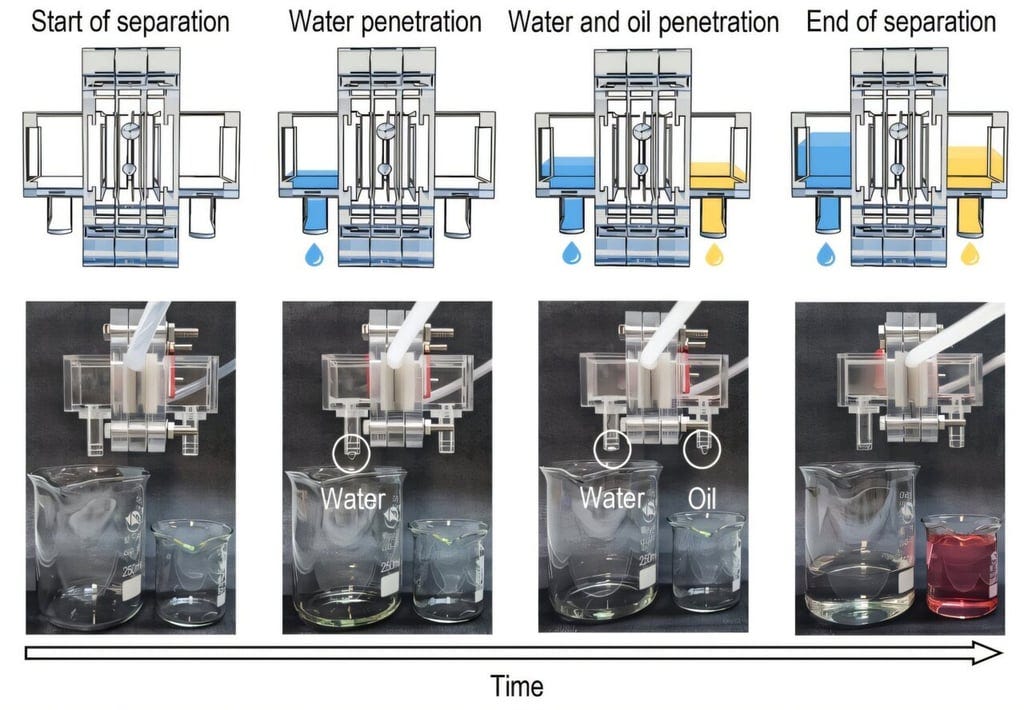
Traditional oil-water separation methods typically only recover one of the two components. However, the new technology, utilizing a Janus Channel of Membranes (JCM), simultaneously extract…
Keep reading with a 7-day free trial
Subscribe to Scientific China to keep reading this post and get 7 days of free access to the full post archives.



